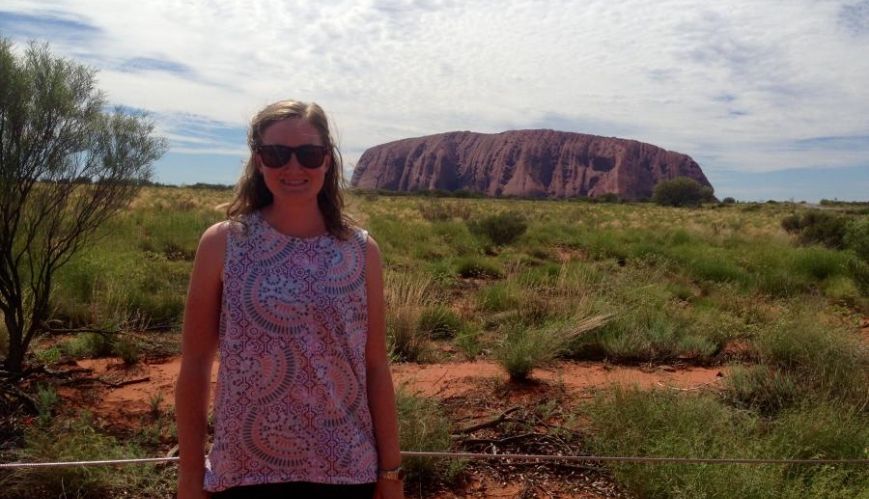How my thinking changed regarding 26 January

How my thinking changed regarding 26 January
26 January 2018
Amanda’s trip to Uluru last year was a profound experience of “coming home”.
Like most Australians, I have enjoyed the 26 January public holiday without much of a thought.
It was a bonus day to enjoy summer, a sleep in and a barbeque. However, over the past few years, the way I have approached 26 January has changed significantly. I can’t necessarily pinpoint a moment or time where my thinking changed – it happened slowly over time, but it was stirred by a relationship with Aboriginal and Torres Strait Islander peoples.
This relationship takes different forms – sometimes it is a bond with my Aboriginal friends, other times it is the articles I read, the assignments I write, or the podcasts and radio shows I listen to.
Something that has been significant for me is the service of acknowledgement, lament and prayer held in the lead-up to 26 January. Last year I attended a service; it was a step of solitary and a personal move towards reconciliation. I was not necessarily required to do anything, except be present, listen and open to learning.
Upon reflection, the service was more significant than I realised. Earlier this year I had an unexpected, yet profound experience of “coming home” – I returned to the Northern Territory 12 years after I’d lived there. Something about the heat, the sounds, and the people helped to foster an intimate connection with the space I had once called home.
As I prepared to leave I reflected on the grief I felt when my family moved on from the territory. Because I had attended the service I was reminded of the generational trauma and displacement Aboriginal Australians have felt since the arrival of colonial settlers.
My ongoing relationship with Aboriginal Australians had led to empathy, understanding and a desire to seek reconciliation, and what I have discovered is that the more I invest in a friendship with Aboriginal and Torres Strait Islander peoples, the more I have an ongoing sense of “coming home”, of connection and reconciliation.
“If you have come to help me, you are wasting your time. If you have come because your liberation is bound up with mine, then let us work together,” Lilla Watson, Aboriginal elder, activist and educator from Queensland, Australia.
This year, Aunty Jean’s Prayer Services are again happening across the country in the lead up to January 26. Find your nearest service here.
This was first published in Common Grace. Amanda Merrett was invited by Salvationist Brooke Prentis, who is the Aboriginal spokesperson for Common Grace.